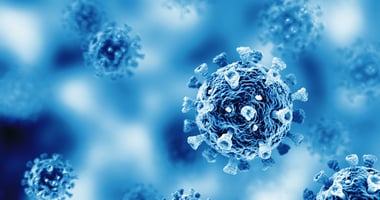Medicare Data Show Disproportionate Effect of COVID-19 on Racial, Ethnic Minorities
 |
Among Medicare beneficiaries, racial minorities—African Americans, Hispanics, and American Indians/Alaskan Natives—have been disproportionately affected by the global COVID-19 pandemic compared with white beneficiaries, according to a “Preliminary Medicare COVID-19 Snapshot” released this week by the Centers for Medicare and Medicaid Services (CMS).
The report was based on claims data from the Medicare Fee-for-Service (FFS) and Medicare Advantage programs received by July 17. COVID-19 cases were determined by an ICD-10 diagnosis code for COVID-19 on a claim or encounter record for any health care setting—for example, physician’s office, inpatient hospital, or laboratory.
According to the report, 549,414 Medicare beneficiaries were diagnosed with COVID-19 between January 1 and June 20. The CMS update reported the following trends about minority groups within the Medicare population:
- Black beneficiaries have been most severely affected by the pandemic, with 1,658 cases of COVID-19 per 100,000 beneficiaries and 670 COVID-19 hospitalizations per 100,000 beneficiaries.
- Among Hispanic beneficiaries, there have been 1,230 cases of COVID-19 and 401 COVID-19 hospitalizations per 100,000 beneficiaries.
- Among American Indian/Alaskan Native beneficiaries, there have been 1,125 cases of COVID-19 and 505 COVID-19 hospitalizations per 100,000 beneficiaries.
Dual Medicare and Medicaid beneficiaries and those with kidney disease have also been especially hard hit by the pandemic. Dual beneficiaries—who often have multiple chronic conditions (including mental and substance use disorders) and are typically in lower socioeconomic groups—have experienced 2,310 COVID-19 cases per 100,000 beneficiaries and 719 hospitalizations per 100,000 beneficiaries.
A total of 5,781 Medicare beneficiaries with end-stage renal disease per 100,000 beneficiaries have been diagnosed with COVID-19, and 1,911 have been hospitalized.
For related information, see the Psychiatric News articles “Black Community Especially Vulnerable to COVID-19,” “Hispanic Community and COVID-19: Addressing Health Inequalities Can No Longer Be Delayed,” “American Indians Face Special Hardships in Combating COVID-19 Pandemic.”





